Politics
NPA argues Hlophe’s ‘mistakes of law’ blocked Bongo corruption conviction, asks SCA for retrial
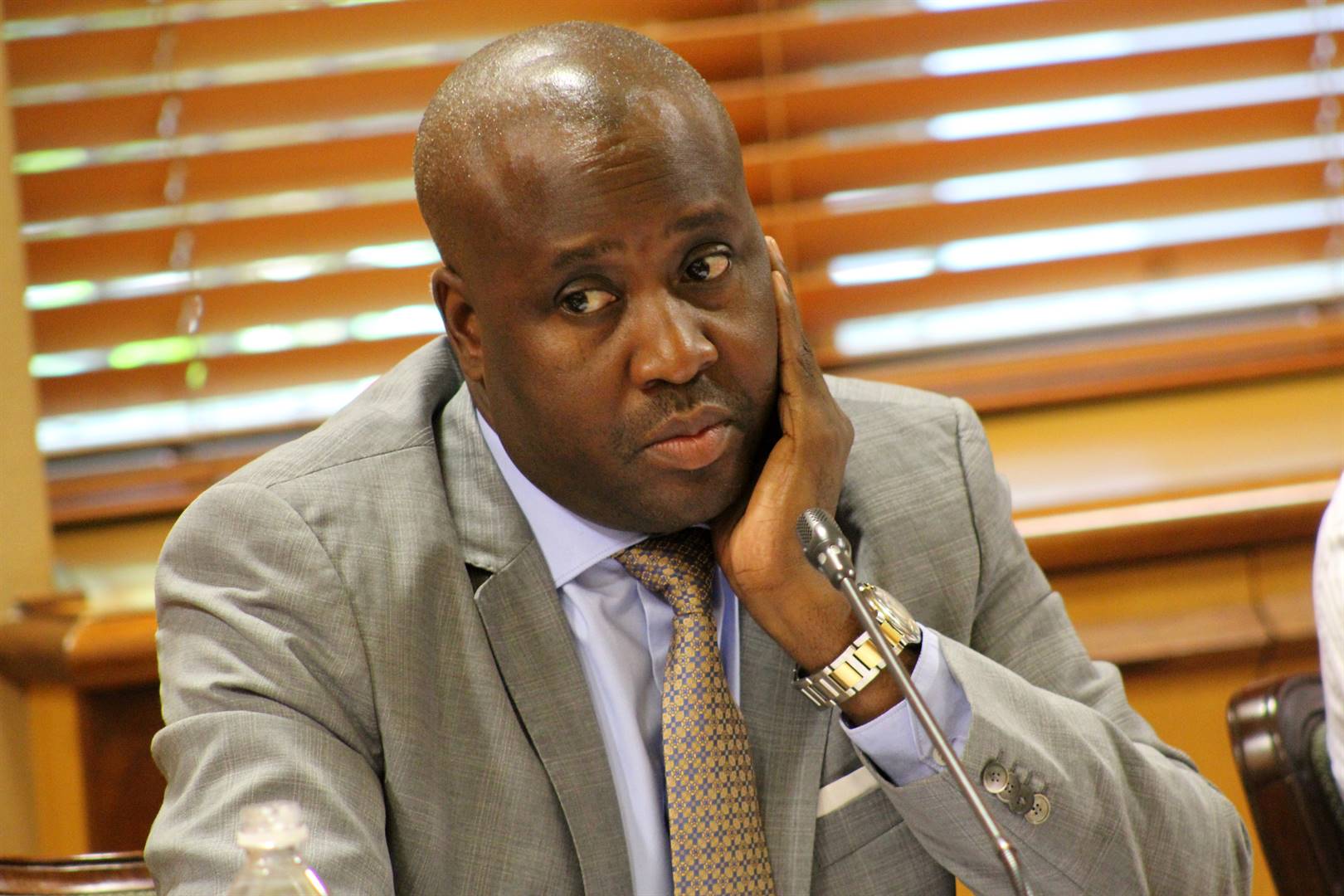
- In February 2021, then-Western Cape Judge President John Hlophe acquitted Bongani Bongo of corruption without requiring him to answer to advocate Ntuthuzelo Vanara’s evidence the former ANC MP had tried to bribe him to halt or collapse Parliament’s Eskom Inquiry.
- Two months later, Hlophe was found guilty of impeachable gross misconduct for trying to influence justices Bess Nkabinde and Chris Jafta to rule in favour of then-ANC president Jacob Zuma in 2008.
- Last week, Hlophe was removed from office after 91% of MPs – including Bongo – voted in support of his impeachment.
Two weeks after John Hlophe became the first judge in South African history to be impeached, the State will ask the Supreme Court of Appeal (SCA) to invalidate his summary acquittal of corruption-accused ANC MP Bongani Bongo – and order a retrial.
In heads of argument filed at the SCA, the National Prosecuting Authority (NPA) argued, that had it not been for “mistakes of law” made by Hlophe in his Section 174 discharge of Bongo on charges of corruptly seeking to collapse Parliament’s Eskom Inquiry, and should Bongo have closed his case without mounting a defence, he would have been convicted of the charges against him.
The State is adamant it presented enough evidence to justify some form of defence from Bongo, a former state security minister who last week was one of hundreds of MPs to vote in favour of Hlophe’s removal from office.
Hlophe was found guilty of impeachable gross misconduct two months after he acquitted Bongo – in a decision that appeared to be, in part, a subverted defence of his own efforts to sway two Constitutional Court justices to rule in favour of then-ANC president Jacob Zuma in 2008.
During the Bongo trial, which ran for two weeks, Hlophe was vocal in his critique of the State’s case, which centred on Eskom Inquiry evidence leader Nthuthuzelo Vanara’s account of how, while he was working as the evidence leader in the inquiry, he had been approached by Bongo and asked to “fake an illness” to prevent that investigation going ahead.
The inquiry was due to start on 20 October 2017.
According to Vanara, Bongo had first called him, three times, on 4 October 2017 – the same day he had scheduled a meeting with the acting chairperson of Eskom, Zethembe Khoza, for the following day in Sandton.
During those calls, Bongo repeatedly sought a meeting with Vanara, who told him he would only be able to meet the following Monday, 9 October 2017.
The pair eventually met at Vanara’s office in Parliament on 10 October 2017.
Vanara testified, after he let Bongo into his office, the MP “told me that he was requested by the acting chairperson of the [Eskom] board to ask me for assistance”.
“When [Bongo] referred to ‘assistance’, I then asked him what the nature of the assistance required was.
“He said that Eskom’s people were worried about incriminating evidence against them and there would be police officials waiting to arrest them.
“I asked him what exactly he meant by ‘assistance’.
“He said the inquiry is Pravin Gordhan’s brainchild and that he was conflicted. He said the inquiry was affecting a number of inquiries.”
In his testimony before the High Court, Vanara said he was confused and asked Bongo again how he could assist.
Bongo then suggested Vanara “fake an illness” and take sick leave so that in Vanara’s absence, the inquiry would not proceed.
Vanara told Bongo he could not assist him.
According to Vanara, Bongo then told him “[j]ust name the price and tell me how you would help stop the inquiry”.
“I will go back to the Eskom people, tell them of your plan to stop the inquiry and the price they would have to pay for your assistance. They will then give me the money and I will hand the money over to you.”
Vanara said his conscience and integrity would not allow him to assist Bongo: “I was cold on my feet. I told him this meeting is over. I opened the door for him and told there is nothing to consider.”
Despite this evidence from him, which was backed up by phone records and testimony from other parliamentary officials, Hlophe found the State had failed to produce enough evidence to require a response from Bongo – and summarily acquitted him.
In his ruling on Bongo’s application for a discharge of the case against him, under Section 174 of the Criminal Procedures Act, Hlophe also found Vanara’s evidence against the MP did not implicate him in the crime of corruption, as defined by the Prevention and Combatting of Corrupt Activities Act (PRECCA).
“The difficulty with Mr Vanara’s evidence is that having a discussion about the delaying or collapsing a parliamentary process is not unlawful in terms of the act.
“The act is very clear that only when an offer of gratification is made in exchange for a prescribed act, i.e. the delay or collapse of the inquiry committee, in favour of Mr Vanara or any other person, only then it becomes a crime,” he stated.
In other words, Hlophe’s ruling found – because Vanara did not reveal what exactly he was offered to delay or collapse the Eskom Inquiry and did not provide any detail on how this bribe would be paid – Bongo’s alleged “discussion” in this regard was not unlawful.
Hlophe also found it was difficult to accept Bongo had tried to bribe Vanara, because the evidence leader did not have the power to permanently stop the Eskom Inquiry and, as a result, such a bribe would have been “futile”.
The NPA said this reasoning was clearly wrong.
“The evidence established that Vanara did not have the power to stop the inquiry but that he had the power to feign illness or take sick leave and, in that manner, assist in delaying the inquiry,” it stated in its heads of argument.
“It is submitted that the court [Hlophe] ought to have concluded that, despite its finding that Vanara lacked the power to stop the inquiry, given the above authority, read with the provisions of Section 25 of PRECCA, this did not constitute a valid defence to [Bongo] in the context of his request to Vanara.
“Failing to find as much amounted to a misdirection in law by the court a quo [Hlophe].”
Within hours of Bongo having allegedly attempted to bribe him, Vanara had reported what he said had happened to four different colleagues at Parliament, who the State maintained did not materially contradict each other in their evidence.
Hlophe, however, found these witnesses had “contradicted” Vanara’s testimony and this “places his credibility as a single witness in question”.
The “contradictions” identified by Hlophe centred on Vanara’s evidence he did not know Bongo was an advocate.
The reason this testimony was important was because Bongo claimed he met with Vanara to prepare “an article to be submitted to the ANC’s presidency” on the consequences of establishing a parliamentary inquiry into Eskom while the State Capture Inquiry could potentially be established to investigate the same issues”.
It is, however, worth noting, at the time Bongo met with Vanara, the Gauteng High Court in Pretoria had yet to rule on Zuma’s legal challenge to then-Public Protector Thuli Madonsela’s state capture report, which had ordered Zuma to establish a commission of inquiry to investigate, among other things, his relationship with the Gupta family.
The NPA has also told the SCA Hlophe was wrong to dismiss Vanara’s evidence as being that of a single witness before he had even heard Bongo’s account of his engagements with the evidence leader.
“Whilst it is so that Vanara’s evidence was that of a single witness as to the alleged utterances of [Bongo] during their meeting in his office on 9 October 2017, the test to be applied at the stage a discharge application is considered is not whether his evidence is clear and satisfactory in all material respects,” the State argued.
“That is the test to be applied upon finalisation of the matter, once the merits of the totality of the evidence are assessed.
“It was this finding that was the cornerstone of the court a quo [Hlophe] granting the discharge of [Bongo].”
The judge president regarded this as a significant contradiction.
Again, the State argued he should have assessed the testimony of these witnesses at the end of the trial, after Bongo had testified and been cross-examined, and then evaluated whose account of events was more believable.
“What the court a quo did was to prematurely assess the alleged discrepancies and improperly attach undue weight to the so-called discrepancies during the discharge application,” the NPA said.
Bongo, represented by advocate Mike Hellens SC, is opposing the State’s application for leave to appeal Hlophe’s decision.
The case will be argued next Wednesday.
© News24
Current Affairs
New survey points to coalition-led SA, but voter apathy a major factor
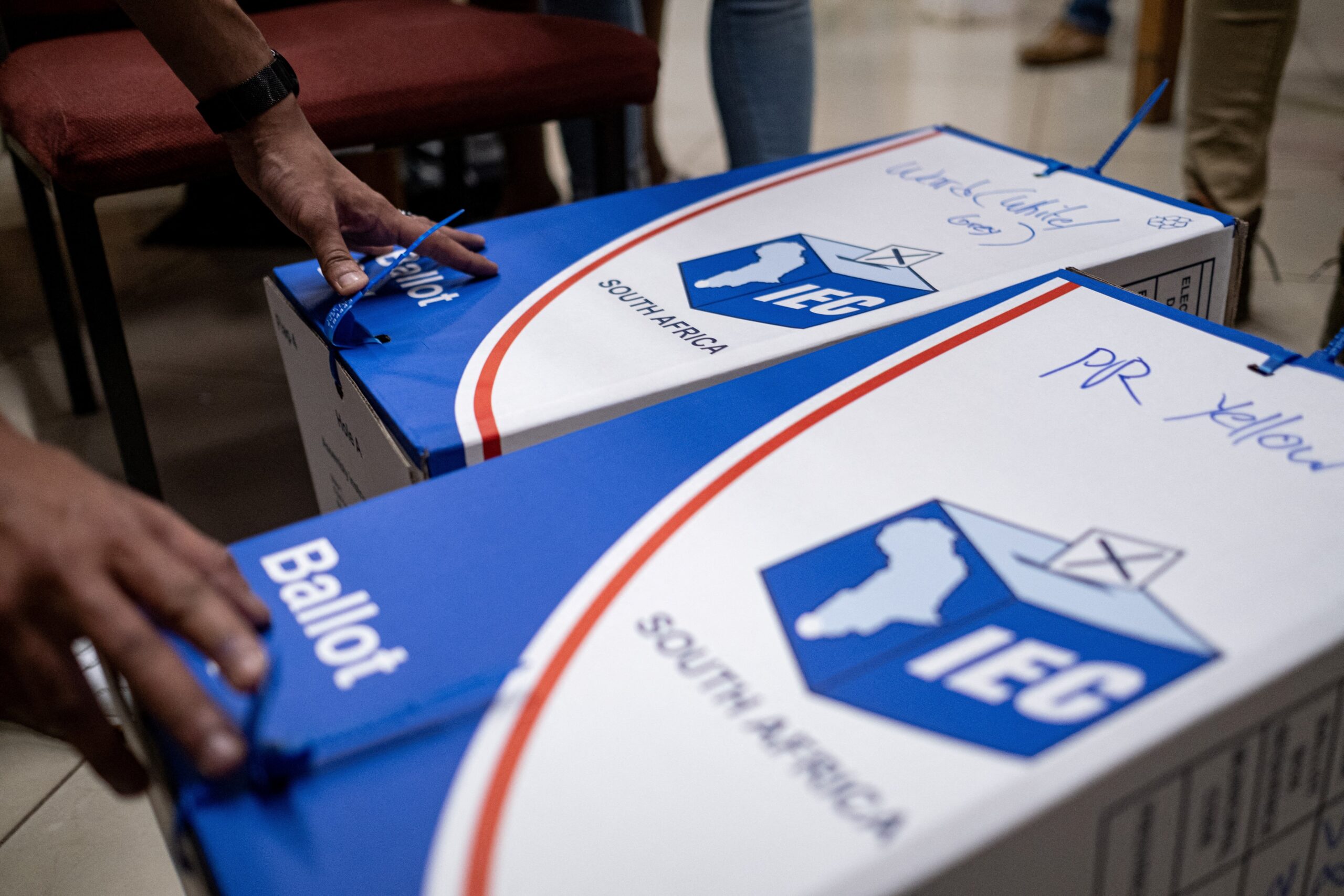
The results of an in-depth survey conducted by African Innovation Research SA (AIRSA) point to the country’s future being in the hands of coalitions and raise concerns about voter apathy, especially among the youth.
The initial sample comprised some 5 000 participants, of whom 46% confirmed they were either not interested in voting despite being registered or had not registered.
The majority of those surveyed by the independent research company based in Cape Town were in the 18–35 age group, a generation who are increasingly disillusioned with how the country is run.
The remaining 2 700 participants, who were interviewed from across a broad section of South Africa’s nine provinces, indicated that support for the ruling ANC is in decline, dipping below the 50% mark to 43% overall.
The ANC’s strongholds remain the Eastern Cape (61% of those surveyed), 58% in the Free State and 65% in Limpopo, where its challenger is the EFF at 23.7%.
In the country’s fourth-largest economy, Mpumalanga, the ANC leads with 52.3%, the EFF at 21.7% and the DA at 19.7%.
In the North West province, it’s a similar pattern, albeit reversed, with the ANC at 48.3%, the DA at 27.7% and the EFF at 20.0%, while in the Northern Cape, the ANC leads with 47.3%, followed by the DA with 24.3% and the EFF with 15.7%.
The country’s economic engine, Gauteng, is a key player in the power dynamics. Here, the ANC garnered 38.7%, but the EFF is growing its base to 19.3%, challenging the DA’s 20% of the province’s voters.
In the Western Cape, as expected, the DA holds onto a leading margin at 46.0%, with the ANC and EFF at 22.3% and 8.7% respectively. Gayton McKenzie’s Patriotic Alliance (PA) also features in the country’s southernmost province, making a notable showing at 5%.
While former president Jacob Zuma may have been barred from becoming a member of Parliament in the Constitutional Court this week, the new uMkhonto weSizwe Party (MKP) will play a pivotal role in KwaZulu-Natal. Results of the AIRSA survey show that while the ANC currently remains ahead with 28.7%, it’s an even race in the province with similar support for the IFP at 26.0% and MKP at 26.7%.
As experience dictates, the smaller parties will begin a series of bargaining tactics as to whose deck they end up in and call the shots.
At collectively accounting for around 20% of the upcoming vote, these potential coalition partners carry significant influence.
AIRSA also noted that voting in this sector is personality-driven as opposed to ideology.
The fragmentation of South Africa’s political landscape could also contribute to increasing dissatisfaction and disillusionment, particularly when linked to the country’s youth and increasing unemployment.
© IOL (Cape Times)
Politics
Zuma lashes out at judges after election ban
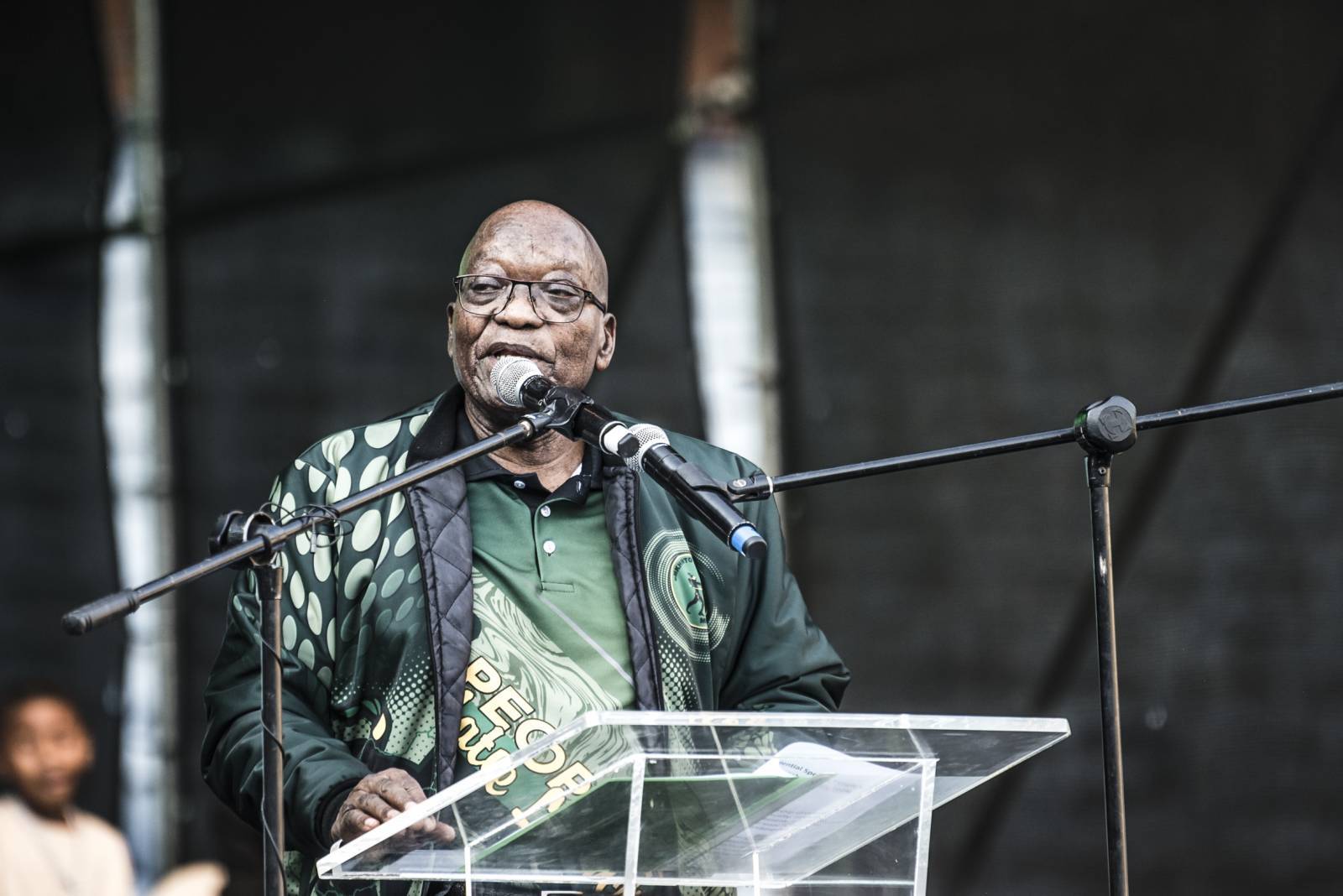
Former President Jacob Zuma has launched a scathing attack on some of the country’s top judges after he was barred from running for parliament on Monday.
In his first interview since the ban, Zuma told the BBC the Constitutional Court was wrong to decide he was unfit to run, based on his 2021 conviction for contempt of court.
“I expected that from our judges, but they are definitely wrong. Not correct,” the 82-year-old said, adding that the constitution should be changed.
Ahead of next week’s general election, Zuma had been campaigning under the banner of the newly formed uMkhonto weSizwe (MK) party.
He joined the party after falling out with the governing African National Congress (ANC), which he used to lead.
The electoral commission argued that the constitution bars anyone who was sentenced to more than 12 months in prison from serving as a lawmaker – a view backed by the Constitutional Court judges.
Zuma was convicted in 2021 for refusing to testify at an inquiry investigating corruption during his presidency.
His lawyers had insisted he was entitled to become an MP as his sentence was reduced to three months after current President Cyril Ramaphosa released him from prison in what was widely seen as an attempt to placate the former president’s angry supporters.
“The judges of the Constitutional Court have acted very funny to me – towards me in particular,” Zuma told the BBC.
“They are not taking into account the will of the people of this country, they use their own will.”
He was president from 2009 to 2018 before being forced out as leader of the ANC amid allegations of widespread corruption in his government.
The corruption, widely known as “State Capture”, saw hundreds of millions of rands of public assets taken into private hands. Zuma has always denied any direct role in corruption, but is due to face trial next year on allegations of bribery.
He told the BBC he had been wrongly stripped of his role as leader of the ANC.
“I don’t know what ‘State Capture’ means. If people say I am corrupt, what did I do? Do you have any facts about it? Am I guilty?
“I was removed before the end of my term, and nothing was produced as evidence that this was an issue.”
Zuma’s MK party had previously voiced its desire to change South Africa’s constitution, which was drawn up 30 years ago at the birth of the country’s democracy following decades of white-minority rule.
Asked about this in the light of his election ban, Zuma reiterated that the historic document needed to be changed.
“This constitution in the continent of Africa is guided by the laws from Europe, not us,” he said.
“There is nothing that has come right in this continent because we are still dominated by those who were the ones [who] slaved us, and after slavery, oppressed us, and after oppression, put their own laws to run us.
“There are details that clash with our lives.”
An Ipsos opinion poll released last month gave MK 8% of the vote, and the ANC 40% as it loses support to MK and other opposition parties.
But some analysts suggest that with the governing party stepping up its campaign in recent weeks, it could still cross the 50% mark. But if the ANC gets less than half of the vote, it would lose its majority for the first time in 30 years.
MK is expected to do especially well in Zuma’s home region of KwaZulu-Natal. Some opinion polls suggest it could emerge as the biggest party in KwaZulu-Natal, ending ANC dominance of the region.
After Zuma was jailed for contempt of court in 2021, angry supporters sparked days of deadly riots. More than 300 people were killed in the clashes.
On Wednesday Zuma said this violence demonstrated the scale of public support for him.
“This must tell you that the masses of this country loves Zuma – that’s why we had that,” he said.
When asked by the BBC if he would use this interview to call for peace and calm ahead of next week’s election, Zuma replied: “I’ve always done so.”
© BBC News
Current Affairs
Iran’s supreme leader leads prayers at Raisi funeral
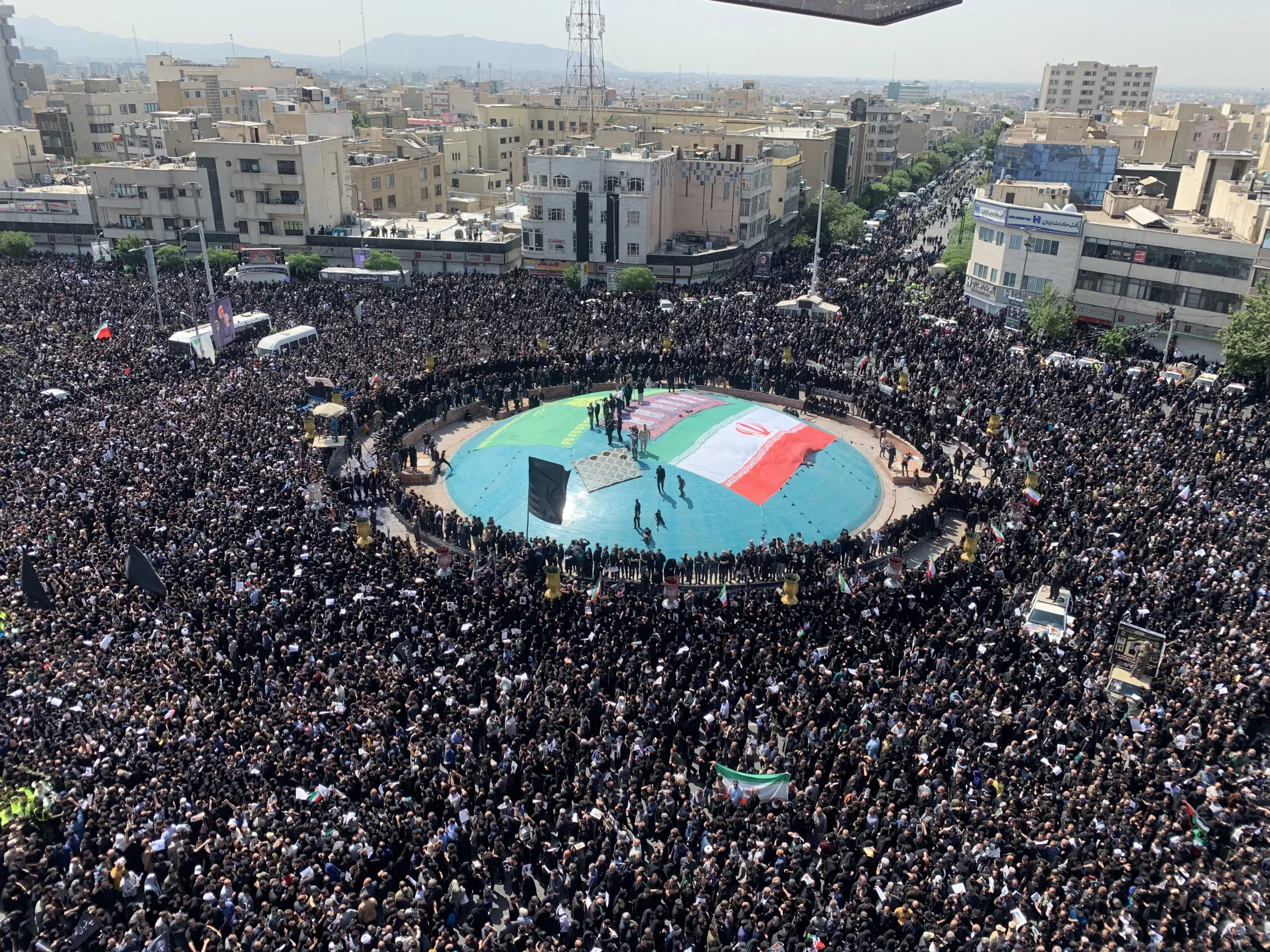
Iran’s supreme leader has presided over a funeral for the country’s late president, foreign minister and others killed in a helicopter crash on Sunday.
Ayatollah Ali Khamenei led prayers at Tehran University, where caskets carrying the dead were draped in Iranian flags.
President Ebrahim Raisi died alongside Foreign Minister Hossein Amir-Abdollahian and six others in a helicopter crash near the border with Azerbaijan.
Authorities had warned against demonstrations against the funeral procession and insults posted online.
“Oh Allah, we didn’t see anything but good from him,” Ayatollah Khamenei said in the standard prayer for the dead in Arabic.
Iran’s acting president, Mohammad Mokhber, stood nearby and openly wept during the service.
People then carried the coffins out on their shoulders, with chants of “Death to America” heard outside.
They loaded them onto a trailer for a procession through downtown Tehran to Azadi Square, where Raisi gave speeches in the past.
In attendance were top leaders of Iran’s paramilitary Revolutionary Guard, one of the country’s major power centres.
Also on hand was Ismail Haniyeh of Hamas, the militant group that Iran has armed and supported during the ongoing Israel-Hamas war.
Haniyeh is widely considered Hamas’s overall leader and has been a prominent member of the movement since 1980. The US Department of State designated him a terrorist in 2018.
“I come in the name of the Palestinian people, in the name of the resistance factions of Gaza…to express our condolences,” Haniyeh said.
He also described meeting Raisi in Tehran during Ramadan, the holy Muslim fasting month.
He said he heard the president say that “the Palestinian issue” remains the key one of the Muslim world, which “must fulfil their obligations to the Palestinians to liberate their land”.
He also claimed that Raisi called Hamas’ October 7 attack in Israel, which saw 1,200 people killed and 250 others taken hostage, an “earthquake in the heart of the Zionist entity”.
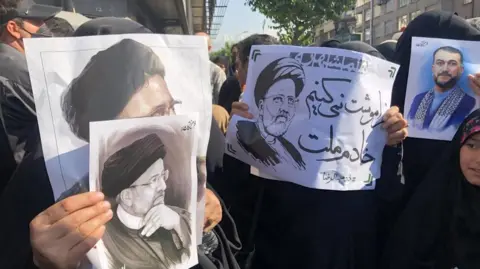
Also expected to attend services in Tehran were Pakistan’s Prime Minister Shehbaz Sharif and a delegation from the Taliban of Afghanistan, which included their Foreign Minister Amir Khan Mutaqqi.
Iran’s theocracy declared five days of mourning over Sunday’s crash, encouraging people to attend the public mourning sessions.
Typically, government employees and schoolchildren attend such events en masse, while others take part out of patriotism, curiosity or to witness historic events.
For Iran’s Shiite theocracy, mass demonstrations have been crucial to demonstrating the legitimacy of their leadership since millions thronged the streets of Tehran to welcome Grand Ayatollah Ruhollah Khomeini in 1979 during the Islamic Revolution, and also attended his funeral 10 years later.
An estimated one million turned out in 2020 for processions for the late Revolutionary Guard General Qasem Soleimani, who was killed in a US drone strike in Baghdad.
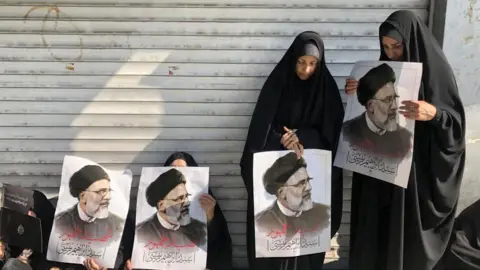
Across the capital, large banners were raised hailing Raisi as “the martyr of service”, while others bade “farewell to the servant of the disadvantaged”.
Some residents in Tehran received texts urging them to attend Wednesday’s ceremonies, the AFP news agency reported.
Footage carried by state TV showed streets filled with mourners, many of whom were carrying pictures of Raisi or the Iranian flag.
Funeral rites for the men began on Tuesday in the city of Tabriz and the Shiite clerical centre of Qom, where thousands of mourners attended ceremonies.
After Wednesday’s procession in the capital, Raisi’s remains will be moved to South Khorasan province, before being transferred to his home city of Mashhad in the northeast.
He will then be buried on Thursday evening in the city after funeral rites at the Imam Reza shrine.
Raisi, a hardline cleric, was a highly divisive figure in Iran. In the 1980s, he oversaw the execution of scores of opposition activists while working as a prosecutor.
He unleashed a brutal crackdown against demonstrators angered by the killing of 22-year-old Mahsa Amini in 2022. She died three days after she was detained by morality police in the capital for allegedly violating Iran’s strict rules requiring women to cover their hair with a hijab, or headscarf.
But his ultra-conservative outlook won favour with supporters of the regime, and Raisi was viewed as a possible successor to Ayatollah Khamenei.
© BBC News
Politics
Ireland to recognise Palestinian state
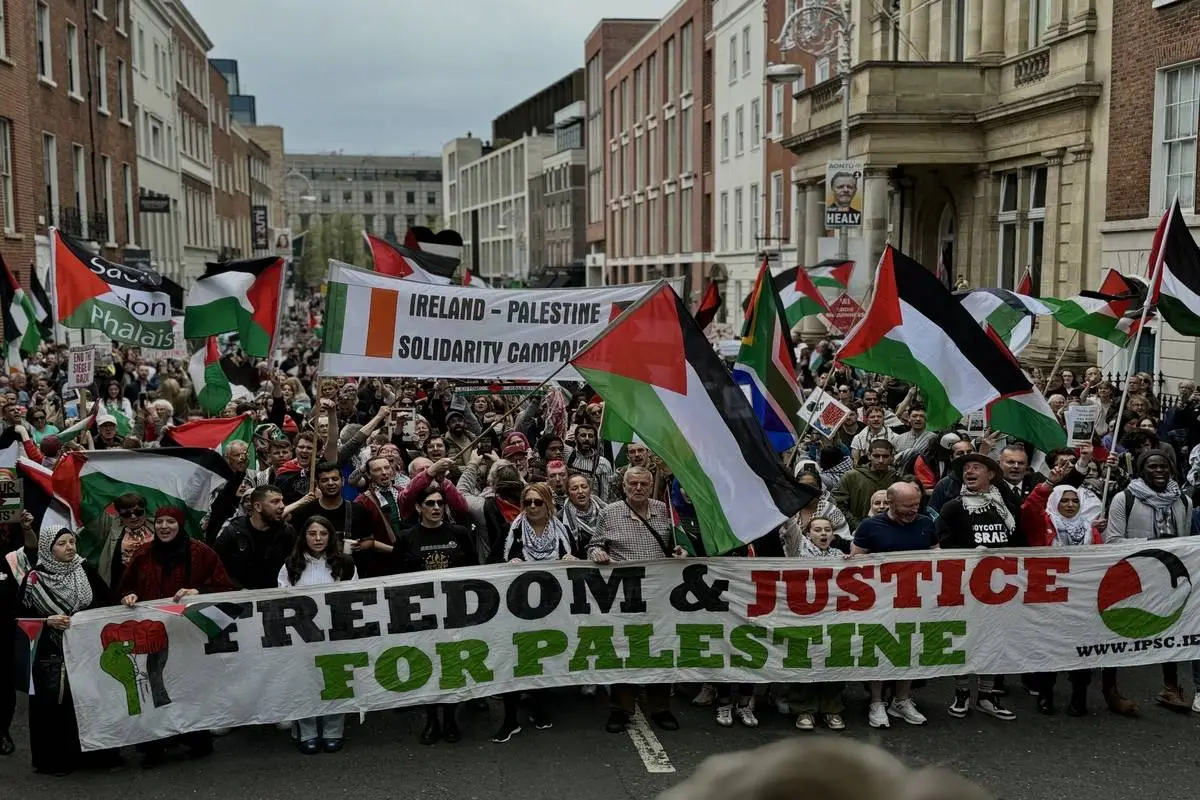
Ireland will recognise a Palestinian state, Prime Minister Simon Harris said on Wednesday, adding that he expected other countries to follow in the coming weeks after talking to world leaders.
“Today, Ireland, Norway, and Spain are announcing that we recognise the state of Palestine,” Harris said at a press conference.
“In the lead up to today’s announcement, I’ve spoken with a number of other leaders and counterparts and I’m confident that further countries will join us in taking this important step in the coming weeks,” he added.
He said a two-state solution was the only credible path to peace and security for Israel, Palestine and their peoples.
The recognition of statehood has particular resonance in Ireland given its history, Harris said.
“Taking our place on the world stage and being recognised by others as having the right to be there was a matter of the highest importance for the founders of our state,” he said.
He added that Ireland was unequivocal in fully recognising Israel and its right to exist “securely and in peace with its neighbours”, and he called for all hostages in Gaza to be immediately returned.
Ireland’s recognition of Palestine will be formally enacted on May 28, foreign minister Micheal Martin said on X.
© Reuters






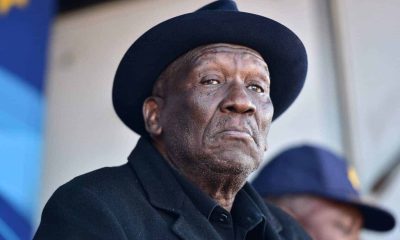

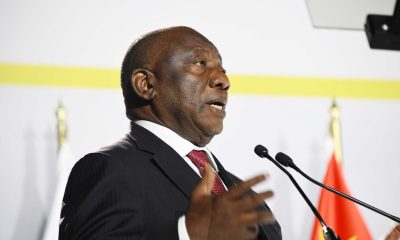

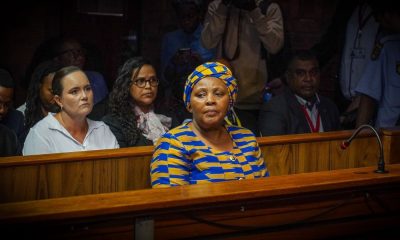








You must be logged in to post a comment Login